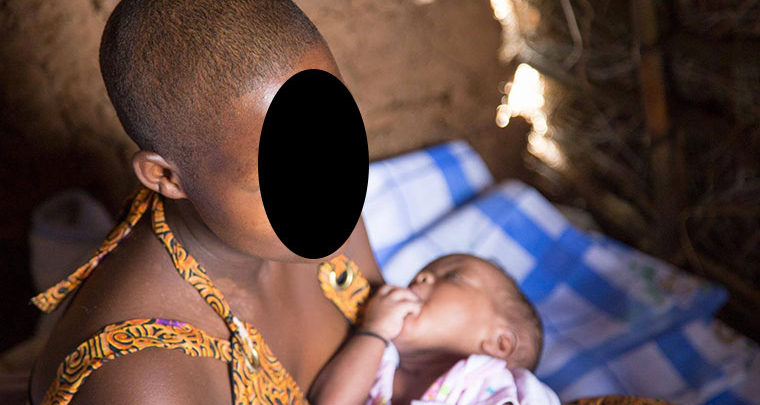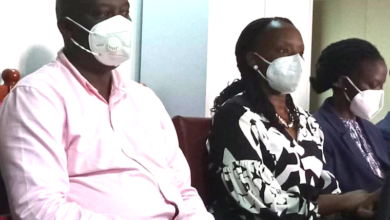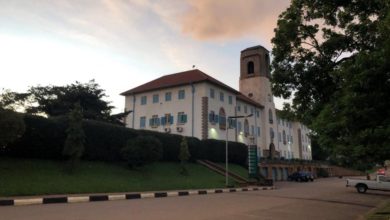Local News
Arua blames UPDF soldiers for fuelling teenage pregnancies
A teenage mother with her baby

Arua district is blaming the rising cases of teenage pregnancies on Uganda People’s Defence Forces (UPDF) soldiers from Bondo army barracks.
District statistics compiled between January and May this year indicate that 59 per cent of mothers who attended antenatal clinics are children below the age of 18.
“Because when the soldiers are being transferred, they don’t come with their families and the effect of this, they get involved with young girls especially in communities near Bondo barracks,” Anziku Mananseh, the acting district health officer told members of Uganda Parliamentarians Forum on Food Security, Population and Development.
The MPs together with the United Nations Population Fund (UNFPA) is in Arua to raise awareness on teenage pregnancies.
“The problem has a very strong connection with poverty, and, soldiers being salary earners, they easily lure girls from poverty stricken families in our communities,” Anziku said.
But the resident district commissioner (RDC) Nahori Oya Awua blamed the problem on poor parenting.
“Parents don’t care about their children, because they are poor, they leave their girls to enjoy themselves with the soldiers,” Awua said.
Last year, more than 9,000 deliveries were recorded from child mothers and an infant mortality rate of 43 deaths per 1,000 live births. Furthermore, 64 children of every 1,000 lives die before the age of five years.
SCHOOL DROPOUTS
The high cases of teenage pregnancies in the district is forcing more girls out of school. According to the district education officer, Marino Acia, only 42 per cent of the girls that enrolled for school in 2011 completed primary seven last year.
Besides poverty at the household level, Acia blames the problem to substance abuse, noting that some girls start consuming alcohol at a young age.
“So many young girls hang out late in the night in trading centres where they get involved with older boys and men in disco halls and bars,” Acia said.
At Oriajin primary school in Katrini sub-county, for instance, a total of 15 cases of dropouts have been recorded over the past three years, all related to pregnancies.
“There is lack of support from parents which forces the girls to follow men with money,” Caroline Tiperu, the school’s senior woman teacher told The Observer.
But the area also has a high number of orphaned children who easily get lured by men who promise to give them a better living. The 2016 Uganda Demographic and Health Survey lists Arua as one of the districts with poor reproductive indicators.
In spite of this, the district was allocated a paltry Shs 8 million for reproductive health programs.
“This issue is a time bomb that the government is not paying attention to, we want these issues to be streamlined in the ongoing development agenda,” Musa Wamala, the coordinator of Uganda Parliamentarians Forum on Food Security, Population and Development said.
Awua, however, argues that Arua’s problem is worsened by the leadership’s lack of courage to enforce laws.
“There is a weakness in enforcing the law because of politics, our politics seems to be fearing the youths because their population is very high, so, some leaders fear annoying them because they are capable of voting out the leaders,” Awua said.
SOURCE:The Observer




